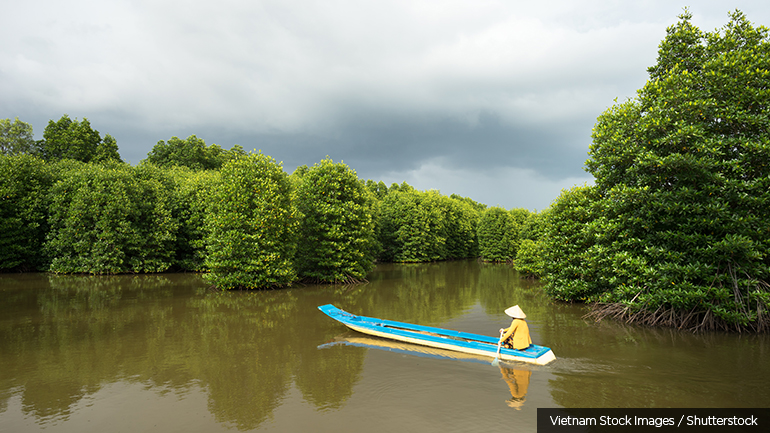
The Lower Mekong Region (LMR), which includes Vietnam, Thailand, Laos, Myanmar, and Cambodia, is an area in Southeast Asia bordering the Mekong River. Tens of millions of people rely on the Lower Mekong River for agriculture and fishing, driving major sectors of the economy and securing livelihoods. Yet, due to its transboundary nature, development and water management in one area can cause water insecurity or flooding in another, increasing the region's susceptibility to environmental stress. The LMR is also a hotspot for biodiversity, including tree species of high commercial value, such as rosewoods and agarwood. Recently, the region has faced a surge in illegal timber trade due to a widening gap in the legal supply of timber, requiring solutions to sustainable natural resource management and alternative livelihood options.
In the Lower Mekong Subregion (LMS), PROGREEN supports Lao PDR, Thailand, Vietnam, and Cambodia in transitioning towards green growth and participatory, integrated approaches to forest landscape management. The knowledge program is helping advance the dialogue on policy solutions for regional economic development, cross-border landscape management, the promotion of innovative technologies, and regional cooperation on critical value chains such as ecotourism and forest plantations.
The knowledge program supported an analytical study and report on regional trends impacting forest landscapes and policy recommendations for regional and country-based interventions titled "Bringing Sustainable Forest Landscape at Scale in the Lower Mekong Region." The findings were used to stimulate regional dialogue between representatives of LMS countries. Additionally, the team engaged in discussions with the Cambodian Ministry of Agriculture, Forestry, and Fisheries on developing a sustainable production forest program. To further facilitate regional cooperation, a webpage was designed as a centralized database to house all analytical works on land and water management in the LMS.